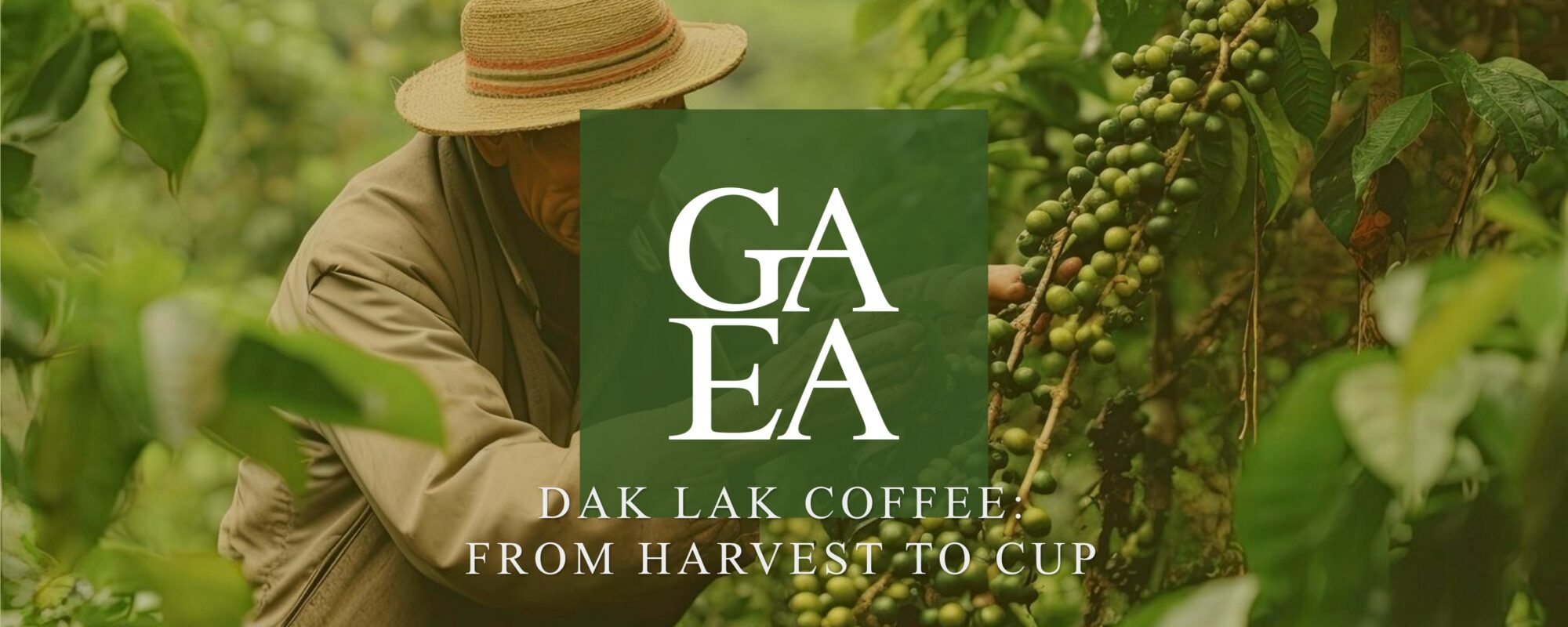Dak Lak: Coffee Analysis
Summary
Vietnam’s coffee sector, generating $2.7 billion in revenue from the export of 1.61 million tons in 2020, is anchored by Dak Lak Province, contributing 40% of the nation’s coffee production. Dak Lak, sprawling across 13,000 sq km, is the epicenter of Vietnam’s coffee industry, boasting 204,000 hectares of coffee plantations and engaging over 200,000 households. Despite challenges like aging trees and global price fluctuations, government initiatives, including modernization and research, position Dak Lak for growth. The province eyes opportunities in global demand, modern practices, and coffee tourism for a promising future.
A Comprehensive Look at Dak Lak’s Thriving Coffee Industry
Introduction
Vietnam’s coffee sector, contributing nearly 10% to the nation’s export revenue, stands as a vital economic force. Dak Lak Province, the largest coffee producer in the country, plays a pivotal role in shaping this industry. This article delves into the historical evolution, current status, and future prospects of the Dak Lak coffee industry, spotlighting governmental endeavors to propel its growth.
Vietnam’s Coffee Dominance
Vietnam, a global coffee heavyweight, exported approximately 1.61 million tons in 2020, generating $2.7 billion. Dak Lak, nestled in the Central Highlands, reigns supreme, constituting 40% of the nation’s coffee output. This narrative unfolds the historical trajectory, contemporary landscape, and future trajectory of the Dak Lak coffee saga.
The Coffee Odyssey in Vietnam
The coffee odyssey in Vietnam began in the late 19th century when the French introduced Arabica plants. After various experiments and expansions, the coffee hub shifted to the Central Highlands, solidifying its reputation. Despite initial economic concerns, coffee cultivation surged in the 1990s, transforming Vietnam into a major global exporter.
Dak Lak Province
The Epitome of Coffee
Dak Lak, sprawled across 13,000 square kilometers in the Central Highlands, emerges as Vietnam’s coffee heartland. With coffee plantations spanning 204,000 hectares and involving over 200,000 households, the province epitomizes the coffee capital of the nation.
Climate and Soil Blessings
Dak Lak’s favorable climate, featuring tropical temperatures ranging from 20°C to 32°C, and acidic soil with a pH of 4.5 to 5.5, create an optimal environment for Arabica and Robusta coffee cultivation. Annual rainfall of 2,000-2,500mm ensures an abundant water supply for coffee growth.
Coffee Production Symphony in Dak Lak
The intricate process of coffee production in Dak Lak unfolds across stages, from planting to harvesting and processing. The region’s coffee trees, maturing in three to four years, undergo meticulous harvesting—either manual or mechanized. Subsequent processing follows two methods: wet, involving fermentation, and dry, relying on sun-drying. The processed beans culminate in roasting and packaging for global export.
Challenges Confronting Dak Lak’s Coffee Kingdom
While Dak Lak’s coffee industry thrives, challenges persist. Aging trees, outdated farming practices, and the absence of modern technologies impede progress. Additionally, global coffee price volatility impacts the industry, relying heavily on exports.
Governmental Boost and Initiatives
To fortify the Dak Lak coffee industry, the Vietnamese government implements strategic initiatives. Modern farming practices, technological advancements, research into disease-resistant varieties, and the formation of farmer cooperatives are key measures. Policies to stabilize coffee prices and financial support further enhance resilience.
Growth Opportunities and Future Landscape
Despite challenges, Dak Lak’s coffee industry eyes growth avenues. The burgeoning global demand for high-quality coffee offers prospects for increased production and exports. Embracing modern techniques enhances productivity and quality, while venturing into coffee tourism taps into additional revenue streams.
The Promising Horizon
With sustained governmental support, Dak Lak’s coffee industry envisions a bright future. Modern practices, technological adoption, and global demand paint a prosperous picture. As the industry aligns with evolving trends, the local economy stands to benefit, promising a thriving future for Dak Lak’s coffee saga.
Conclusion
The Dak Lak coffee industry, integral to Vietnam’s economic fabric, undergoes a transformative journey. Challenges notwithstanding, the sector’s alignment with global demands, coupled with governmental support and forward-looking initiatives, positions Dak Lak for a resilient and prosperous future.
FAQs
1. What is the history of coffee production in Vietnam?
- Coffee production in Vietnam dates back to the late 19th century, introduced by the French. However, significant growth occurred in the 1990s due to government encouragement.
2. What is Dak Lak Province known for?
- Dak Lak is renowned for its expansive coffee plantations, covering 204,000 hectares and contributing 40% to Vietnam’s coffee production.
3. What challenges does the Dak Lak coffee industry face?
- Challenges include aging trees, outdated farming practices, limited access to modern technologies, equipment, and the global price volatility of coffee.
4. What initiatives has the Vietnamese government implemented to support the Dak Lak coffee industry?
- The government focuses on modern farming practices, technological adoption, research into disease-resistant varieties, formation of farmer cooperatives, and policies to stabilize prices.
5. What is the future of the Dak Lak coffee industry?
- The Dak Lak coffee industry envisions a promising future, fueled by global demand, modern practices, technological adoption, and the development of coffee tourism.
GAEA, Vietnam Sourcing & Manufacturing
Established in 2019, GAEA Vietnam Sourcing, a manufacturer and supplier, is your green coffee bean sourcing and export partner in Vietnam. We undoubtedly have the widest available assortment and are best updated on stock, prices, and the latest crops. We also manufacture and roast coffee under private or no label for brands across the hospitality, foodservice, and retail sectors, reflecting our B2B manufacturing. Our product range includes roasted whole beans and ground coffees. Read more information here: LINK.
OUR GENERAL INQUIRIES
> concierge[at]gaea-global.com
> +84 96 2544 004


